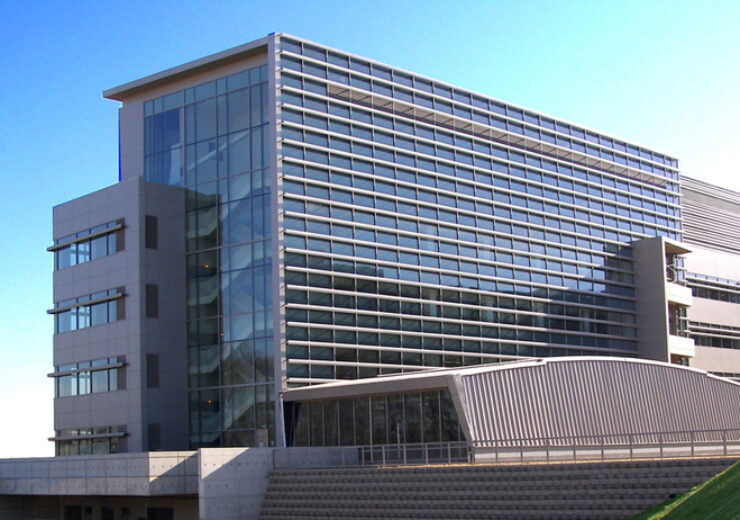AVEO claimed that Fotivda is the first FDA approved therapy for relapsed or refractory advanced renal cell carcinoma after two or more prior systemic therapies

FDA Building 62 houses the Center for Devices and Radiological Health. (Credit: The U.S. Food and Drug Administration/Wikipedia.)
AVEO Oncology has received the US Food and Drug Administration (FDA) approval for Fotivda (tivozanib) to treat a type of renal cell carcinoma (RCC).
The US FDA indicated Fotivda to treat relapsed or refractory advanced renal cell carcinoma (RCC) in adults who received two or more prior systemic therapies.
Fotivda is an oral, next-generation vascular endothelial growth factor (VEGF) tyrosine kinase inhibitor (TKI), that selectively inhibits VEGFRs 1, 2, and 3.
With a long half-life for enhanced efficacy and tolerability, the drug was approved in the European Union (EU) and territories of its partner EUSA Pharma in August 2017, to treat advanced RCC in adults.
AVEO intends to commercialise Fotivda in the US, by the end of this month.
AVEO president and CEO Michael Bailey said: “We believe in Fotivda’s potential to provide a differentiated treatment option for the growing number of individuals in the US with relapsed or refractory RCC, and today marks the culmination of many years of hard work and determination of many individuals to bring this therapy to patients.
“With today’s approval, AVEO begins its journey as a commercial-stage company, a noteworthy accomplishment in our industry.
“On behalf of the entire AVEO team, I would like to thank all the patients, their families, and caregivers whose tireless efforts made this day possible.”
The US FDA approval is based on results from the Phase 3 TIVO-3 study, which evaluated Fotivda in relapsed or refractory advanced RCC following two or more prior systemic therapies, compared to sorafenib.
AVEO’s regulatory application is also backed by three additional trials in RCC and includes safety data from more than 1,000 subjects in clinical trials.
Progression-free survival (PFS), as assessed by a blinded independent radiology review committee is the primary efficacy outcome measure of the study.
Overall survival (OS) and objective response rate (ORR) include the other efficacy endpoints.
In Phase 3 clinical trial, patients treated with Fotivda showed a median PFS of 5.6 months compared to 3.9 months for those treated with sorafenib.
Also, the drug demonstrated a median OS of 16.4, compared to 19.2 months for sorafenib, while ORR was 18% for Fotivda, compared to 8% for the sorafenib.
The most common adverse reactions include fatigue, hypertension, diarrhoea, decreased appetite, nausea, dysphonia, hypothyroidism, cough, and stomatitis.
TIVO-3 trial principal investigator Brian Rini said: “Today’s approval of FOTIVDA provides a new tool for treating patients with kidney cancer who have relapsed or become refractory to two or more prior systemic therapies.
“With advances in RCC treatment, patients are living longer, increasing the need for proven, well-tolerated treatment options in the relapsed or refractory setting.
“The TIVO-3 study is the first positive Phase 3 study in RCC patients who received two or more prior systemic therapies, and also the first Phase 3 RCC study to include a predefined population of patients who have received prior immunotherapy, the current standard of care in earlier-line treatment.”
